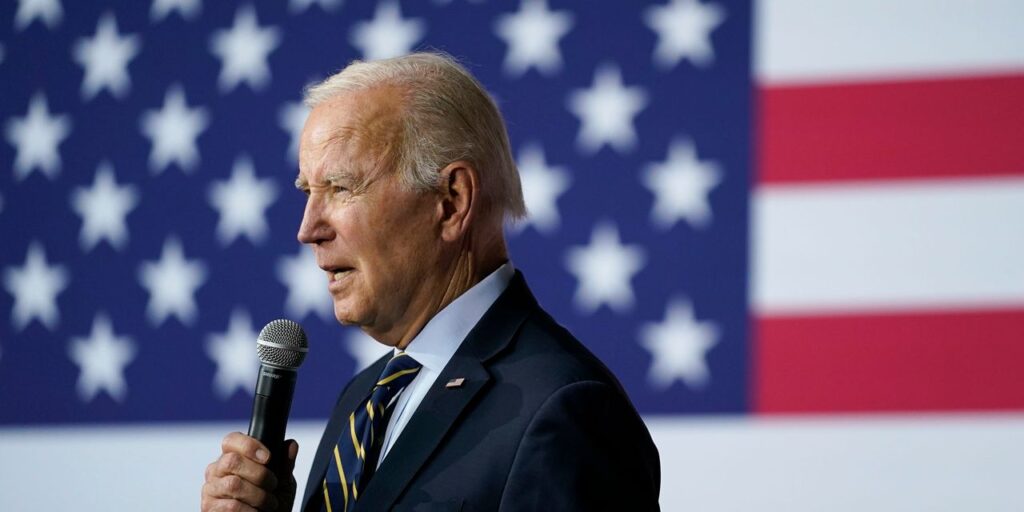What is the 14th Amendment, and could it be an option for resolving the debt-ceiling impasse?
Even as President Joe Biden and House Speaker Kevin McCarthy sound upbeat notes about a deal to resolve their standoff over raising the federal borrowing limit, some Senate Democrats are urging the commander in chief to prepare to invoke the amendment to avert a crisis. The Democrats’ moves are a sign of dissatisfaction with some aspects of the negotiations, NBC News reported, such as Republican demands to impose tougher work requirements on recipients of certain federal benefits.
Deputies for Biden and McCarthy are negotiating while the president is in Japan at a G-7 meeting. A vote on a deal could come next week in the House, according to McCarthy.
Here are a few key questions about the constitutional amendment.
What does the 14th Amendment say?
For the purposes of the debt-ceiling discussion, the relevant passage reads, in part: “The validity of the public debt of the United States … shall not be questioned.”
What would invoking the 14th Amendment mean in practice?
The government would keep borrowing money and paying its bills. The idea is that it would be unconstitutional for the U.S. to stop making payments, even if Congress doesn’t act to raise the debt ceiling.
What has Biden said about this option?
Biden was asked about the 14th Amendment during an MSNBC interview earlier this month. He replied, “I’ve not gotten there yet.” Treasury Secretary Janet Yellen, speaking at a news conference in Japan on May 11, said invoking it would be “legally questionable.”
However, the option has been on Biden’s mind.
Following a debt-ceiling meeting on May 9, Biden said, “I have been considering the 14th Amendment.” He cited the opinion of a scholar who he said believes it would be legitimate.
But, the president said, there’s a problem: “It would have to be litigated. And in the meantime, without an extension, it would still end up in the same place.”
After Biden’s May 9 comments, Tobin Marcus, senior U.S. policy and politics strategist at Evercore ISI, said not to read too much into the president’s statement.
“Despite some breathless headlines based on Biden’s post-meeting remarks that he is ‘considering’ invoking the 14th Amendment to unilaterally declare the debt ceiling unconstitutional, a closer look at his remarks suggests the opposite: he has looked at the option and does not believe it is a viable way to prevent a crisis,” Marcus wrote in a note. “This should lower, not raise, assessments of how likely the White House is to take this step.”
White House officials have spent time going through the legal considerations and potential market reactions, as the Wall Street Journal has reported, but administration lawyers are skeptical of using the 14th Amendment to resolve the situation.
Has the 14th Amendment been discussed during previous debt-ceiling standoffs?
Yes. It was considered by President Barack Obama, who decided against invoking it. And while Biden’s lawyers are reportedly skeptical, there are members of Congress and legal scholars who say invoking the amendment is an option.
Read the full article here











